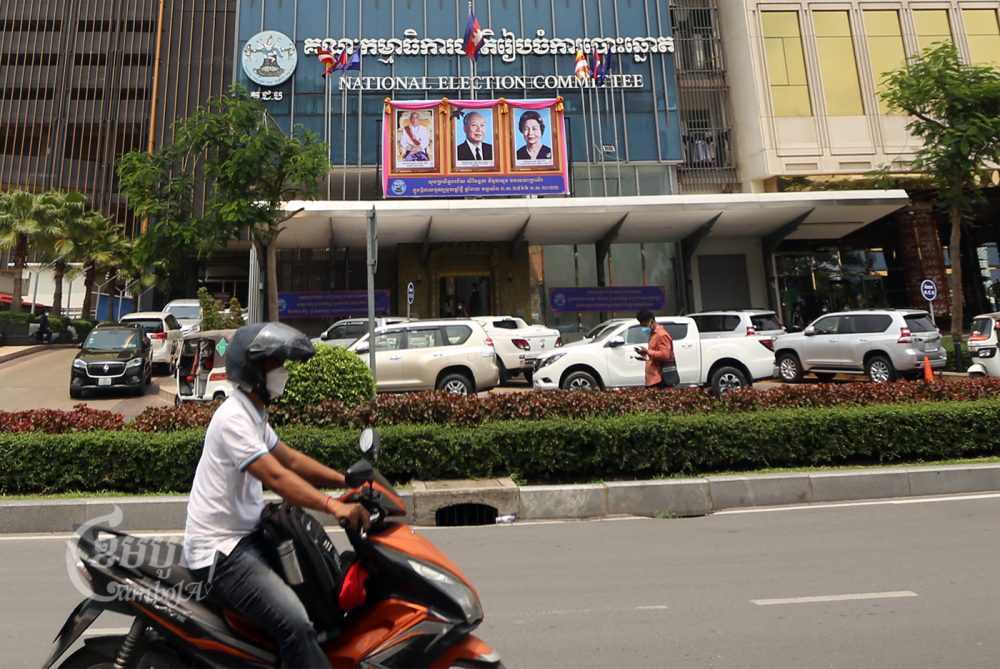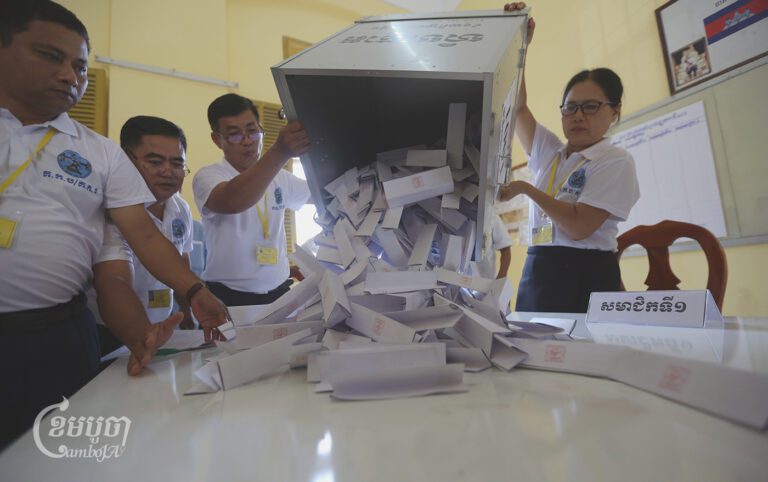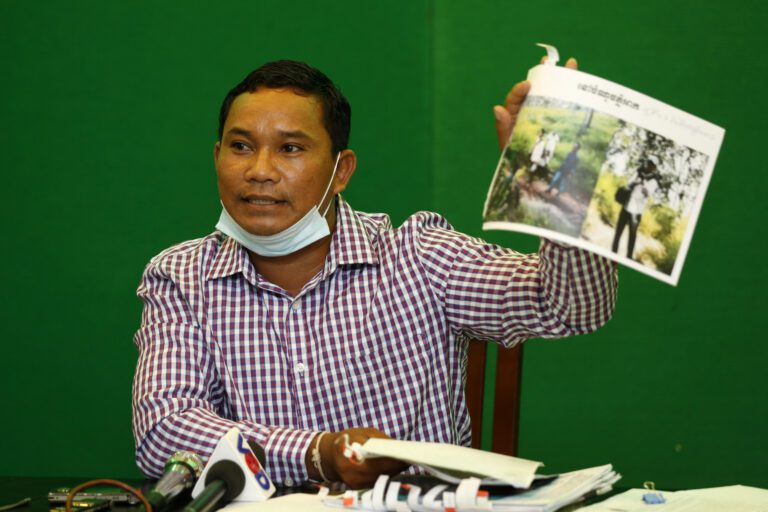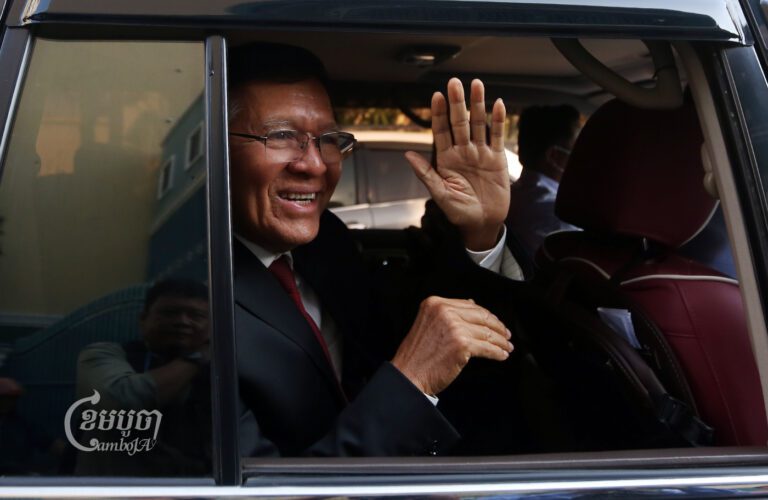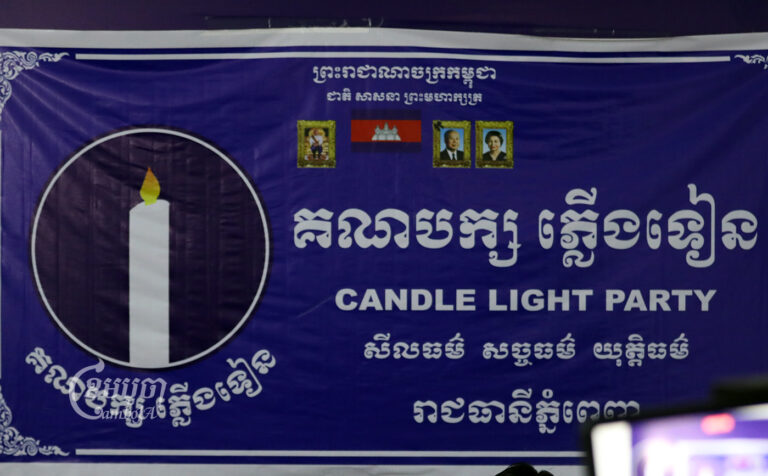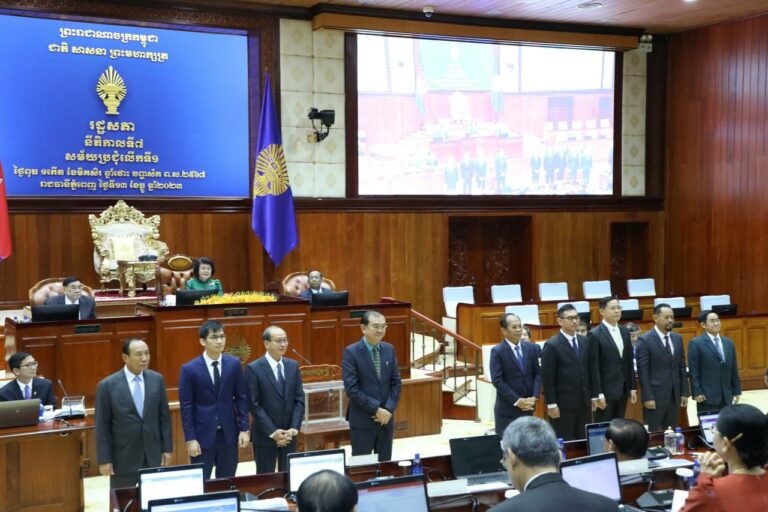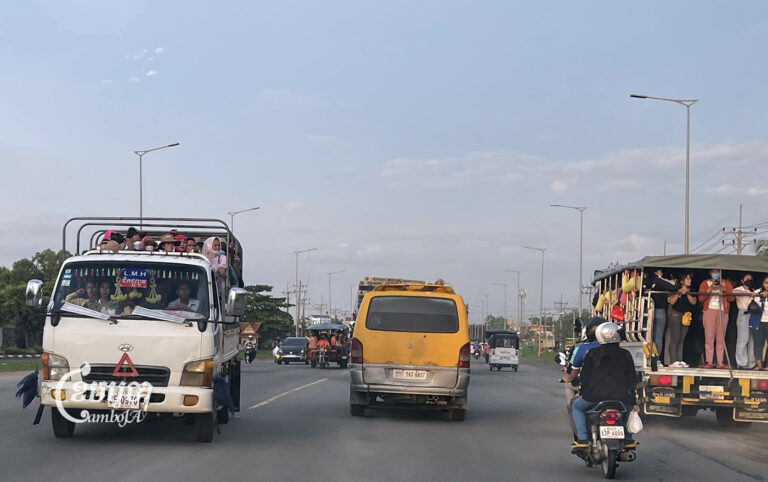The National Election Committee (NEC) appears set to reject key recommendations from civil society and opposition political parties intended to improve fairness and transparency in the July national elections.
The final draft of the NEC’s national election procedures is scheduled to be published later this week, NEC spokesperson Hang Puthea said. But many recommendations from opposition parties and civil society groups to improve election fairness and transparency will not be implemented because they are ineffective or not legally possible, he claimed.
“They do little, speak a lot,” said Puthea, of opposition parties and NGOs. “They believe that following their opinions will lead to free and fair elections, but I think this is a wrong idea.”
Election monitoring NGO Committee for Free and Fair Elections in Cambodia (COMFREL) submitted 58 recommendations, none of which were accepted by the NEC, according to Korn Savang, monitoring and advocacy program coordinator. He said COMFREL had reviewed an advance copy of the NEC’s expected final report on December 30.
“There is no point [raised by COMFREL] accepted by the NEC for improvement, but as a civil society organization, we will continue to monitor [elections],” Savang said. Failing to implement the suggested improvements “will affect democratic elections, which is why the recommendations need to be included in the election procedures and regulations.”
Cambodia falls short of the requirements needed for free, fair and open elections, according to a pre-commune election 2022 assessment from the Asian Network for Fair Elections, a regional network of election monitoring organizations, of which COMFREL is a member.
Puthea said the NEC had accepted more than 180 recommendations solicited during a November comment period. He claimed the NEC rejected only 22 recommendations, though he acknowledged these included the key changes requested by COMREL and opposition parties. Puthea did not respond to requests for clarification about whether any of COMREL’s recommendations were accepted.
Many of COMFREL’s recommendations were shared by four opposition political parties, Candlelight, Cambodia Reform Party, Grassroots Democratic Party and the Khmer National United Party, in response to irregularities observed in the June commune election procedures last year.
Representatives from the four parties said they had not yet received a response from the NEC but were concerned if none of their suggestions were implemented.
“Political parties are key players in the election process, and if the proposals made were rejected and not considered, it will affect the election process,” said Yeng Virak, president of the Grassroots Democratic Party.
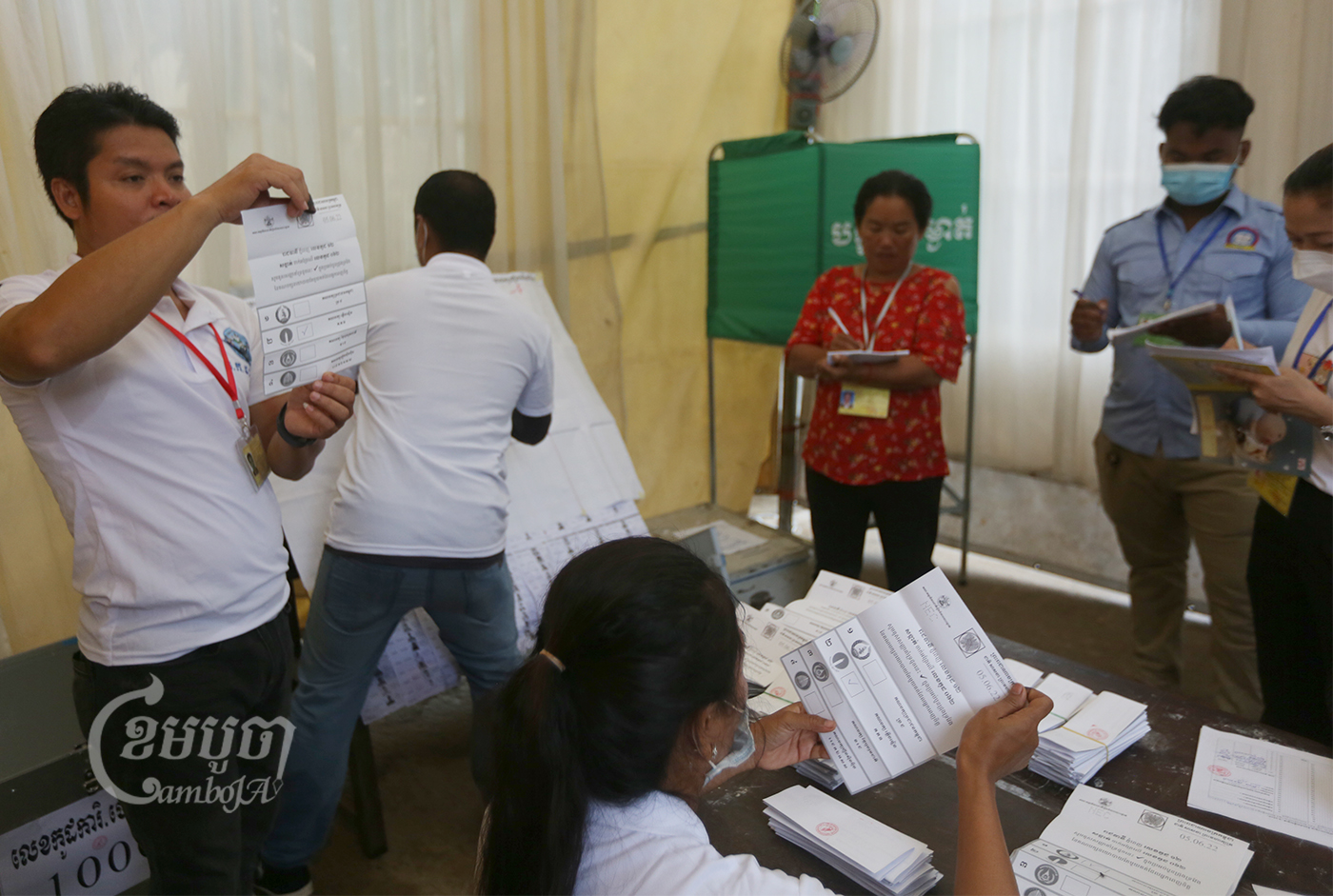
Among other recommendations, COMFREL and the four political parties urged the NEC to not allow closed doors and windows at polling stations during the ballot counting process, to more transparently distribute physical records of the balloting counting process following polling and to prohibit the presence of armed forces and officials outside polling stations. They also requested the NEC ban the use of mock ballots to show would-be voters how to vote for a certain party — as the ruling CPP has repeatedly done in the run-up to elections.
“Allowing people to see the ballot counting is to ensure the transparency of counting,” COMFREL stated in the recommendations it submitted to the NEC. “Closing the gate, door and window of the polling station…will lead to suspicion over the ballot counting.”
NEC’s Puthea said closing doors and windows during ballot counting is done for security purposes and would not affect vote tallying because each political party had its own representative participating and independent election observers would be present.
CPP spokesperson Sok Eysan said requests to change election procedures and regulations were not addressing serious problems, claiming the closed door and windows during commune elections were the result of weather.
“The closure of [door and window] was due to weather problems during the rainy or windy weather and this applied only to polling stations where the problem occurs,” Eysan said.
He said the CPP, which handily won the commune elections last year, has no issues with the elections procedures and did not submit any recommendations to the NEC.
Another COMFREL recommendation included preventing local officials from noting down voters’ information near polling stations, which was observed in the commune elections.
“When the authorities come to register names at the polling station, this is a threat and it will definitely affect the decisions of people,” said COMFREL’s Savang.
One of the most contentious issues raised by COMFREL and the four opposition parties centered on changing the use of so-called “1102 forms,” which summarize the ballot counting process, including invalidated ballots.
Before the 2018 national elections, physical copies of the official 1102 forms were given to representatives from all political parties following the conclusion of counting at each polling station. But these forms are no longer distributed directly.
Instead, the form is written down in three copies. One is posted outside the polling stations for representatives of political parties and election monitors to photograph, another is kept in a security package and a third is sent to the commune election committee as a finalized result.
Opposition parties have expressed concern that the final copy could be changed, as NEC regulations allow for it to be corrected by pen. NEC’s Puthea dismissed these concerns.
“I think that it is just a political tactic and they may think that the data in the form 1102 may be changed but the NEC already ensures transparency by posting the form at the polling station,” he said.
COMFREL also requested the NEC to directly handle election related complaints rather than turn these issues over to the court system, such as in the case of Candlelight vice president Son Chhay, who called the NEC biased, leading to a defamation lawsuit from the CPP and the NEC.
“We did not sue him [Chhay] for an election-related complaint, we only sued him to protect our own legitimacy in the defamation case,” Puthea said. “If we did not sue him, it would mean that what he said was true.”
He added that other recommendations proposed by some groups “could not be implemented in reality,” such as a request to increase the number of National Assembly seats in the nine provinces, such as Preah Vihear and Koh Kong, where there is only one seat. He said the NEC did not have the authority to make this change, or to set up polling stations along the border, another request.
“NEC cannot accept anything that is contrary to the law, while some recommendations could not be implemented in real practice, we also look at the practical implementation whether it is possible or not,” he said.
Yem Ponharith, vice president of Khmer National United Party, told CamboJA that the requests for changes in election procedure and regulations was meant to ensure fairness.
“In order to build trust between the election body, the competitors and people who have the right to vote, it is necessary to build transparency,” he said. “We are not asking [for changes] without reason, and this will undermine the confidence of the 2023 national election and raise questions for the public.”
Additional reporting by Phon Sotthyroth


